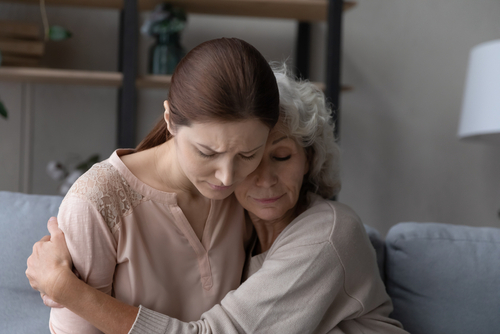In a Virginia wrongful death claim, a personal representative is named in the lawsuit. Some people wonder if that representative entitles the personal representative to more damages if the lawsuit is successful. Our wrongful death lawyers know that the representative is not entitled to more and that each beneficiary gets a portion of the estate that they’re entitled to.
If you have lost a loved one due to the actions of another party, call Shapiro, Washburn & Sharp at 833-997-1774 for a free and confidential consultation. We will examine all circumstances to determine your best course of action for financial justice.
Does the Person Named in a Wrongful Death Lawsuit in Virginia Automatically Receive More Than Other Beneficiaries?
A person named in a wrongful death lawsuit in Virginia does not automatically receive more compensation than other beneficiaries. The distribution of the award in a wrongful death case is determined by the court or as outlined in the decedent’s will or through an agreement among the beneficiaries. In Virginia, the law provides for a variety of beneficiaries, typically including the surviving spouse, children, parents, or other family members who were financially dependent on the deceased person.
While a wrongful death lawsuit may designate a specific individual (such as the administrator of the estate or the personal representative) to handle the legal aspects of the case, this does not mean that the individual will receive a larger share of the award. The actual division of the recovery depends on the specific circumstances of the case and the relationship between the deceased and the beneficiaries.
How Is the Wrongful Death Award Distributed Among Beneficiaries in Virginia?
In Virginia, the distribution of a wrongful death award is based on the surviving family members’ relationship to the decedent and their financial dependency. Virginia’s wrongful death statute outlines the following general categories of beneficiaries:
- Surviving spouse
- Children (including adopted children)
- Parents
- Other family members who were financially dependent on the decedent
The court or the estate’s representative will determine how the award is divided. The surviving spouse and children are typically given the largest portions of the settlement or verdict. If the decedent did not have a spouse or children, then the parents and other family members may be eligible to receive compensation.
The allocation is typically based on the financial losses suffered by the beneficiaries as a result of the wrongful death. For instance, if a surviving spouse was financially dependent on the decedent, they may be entitled to a larger share of the compensation. In some cases, the court may consider factors such as emotional distress and the decedent’s relationship with the beneficiaries when determining the division.
Can the Personal Representative Receive a Larger Portion of the Settlement?
The person named in the wrongful death lawsuit, often the personal representative of the estate, does not typically receive a larger portion of the wrongful death settlement unless explicitly stated in the decedent’s will or unless there is a specific agreement among the beneficiaries. The personal representative is responsible for managing the lawsuit, gathering evidence, and distributing the award, but their role is typically considered administrative.
However, in some cases, the personal representative may receive a fee for administering the wrongful death claim. This fee is generally a percentage of the award and is subject to approval by the court. The personal representative is obligated to act in the best interests of the estate and the beneficiaries, meaning they must ensure that the wrongful death settlement is distributed fairly according to the law.
If the beneficiaries agree, the personal representative may receive a larger portion, but this must be a decision made by the beneficiaries or by the court, not something automatically granted to the named individual.
Are There Factors That Could Influence How Much a Person Named in a Wrongful Death Lawsuit Receives Compared to Other Beneficiaries?
Several factors could influence how much a person named in a wrongful death lawsuit receives compared to other beneficiaries in Virginia. These include:
- The decedent’s will or estate plan: If the decedent had a will or other estate planning documents that specify how the wrongful death settlement should be distributed, those instructions would typically take precedence over the statutory rules.
- The role of the personal representative: As mentioned earlier, the personal representative may receive a fee for administering the wrongful death case. This is typically a percentage of the settlement or judgment, but the court must approve it. This fee may reduce the amount available for distribution to the other beneficiaries.
- Contributions of the beneficiaries: In some cases, the beneficiaries’ contributions to the decedent’s care, support, and well-being could influence the distribution. For example, if one beneficiary was financially dependent on the decedent and played a major role in their care, they may be entitled to a larger portion of the settlement.
- The nature of the relationship: The emotional distress suffered by each beneficiary may be considered by the court when determining how to divide the award. Some beneficiaries, such as a surviving spouse or children, might be entitled to more compensation due to the close relationship with the decedent.
- State laws and court discretion: Virginia law grants the court the authority to consider the specific circumstances of the wrongful death case when distributing the settlement. This can involve weighing factors such as the financial and emotional losses suffered by the beneficiaries.
How Can Your Personal Injury Law Firm Help?
At Shapiro, Washburn & Sharp, we understand that no amount of money will ever make up for the loss of your family member, but we also know that a wrongful death claim is often the only way a family will ever receive any justice for their loved one’s death.
Call 833-997-1774 today to schedule a free and confidential case evaluation with one of our dedicated wrongful death lawyers and find out what legal recourse you may have.
